




If you’ve ever run out of dishwasher detergent and found yourself staring at a sink full of dirty dishes, you may have wondered if you could just use washing up liquid instead. After all, both dishwashing and washing up liquids are designed to clean our dishes, right? Well, not so fast. While it may be tempting to use whatever you have on hand, there are some important things to consider before using washing up liquid in your dishwasher.
First and foremost, dishwashers are specifically designed to work with dishwashing detergents, not washing up liquids. Using the wrong detergent can cause a whole host of problems, from foaming and sudsing to damaged parts and a messy clean-up. Dishwasher detergents are formulated to be low-foaming, meaning they don’t produce as many suds as washing up liquids. This is important because too much foam can lead to overflowing and even damage to the dishwasher itself.
Another important consideration is the concentration of the detergent. Dishwasher detergents are more concentrated than washing up liquids, which means they are able to clean dishes more effectively. Washing up liquids, on the other hand, are typically less concentrated and therefore may not be as effective at removing food particles and grease from your dishes.
So, what should you do if you’ve run out of dishwasher detergent? Well, instead of reaching for the washing up liquid, there are a few other options you can try. One option is to use a homemade dishwasher detergent, such as a mixture of baking soda and citric acid. These homemade detergents can be just as effective at cleaning your dishes, without the risk of damaging your dishwasher or leaving behind a foamy mess.
If you do find yourself in a bind and need to use washing up liquid in your dishwasher, there are a few steps you can take to minimize the risk of damage. First, make sure to only use a small amount of washing up liquid – a little goes a long way. Next, thoroughly rinse your dishes before placing them in the dishwasher to remove any excess soap. Finally, run a quick rinse cycle after the wash cycle to help remove any remaining suds.
In conclusion, while it may be tempting to use washing up liquid as a substitute for dishwasher detergent, it is generally not recommended. Dishwashers are designed to work with specific detergents, and using the wrong one can lead to a variety of problems. Instead, it’s best to stick to using dishwasher detergents or explore homemade options if you find yourself without detergent. By following these suggestions, you can ensure a clean and problem-free dishwasher experience.
Using Washing Up Liquid in a Dishwasher: What You Should Know
If you’ve ever run out of dishwasher detergent and found yourself with a dirty load of dishes, you might have wondered if you can use washing up liquid as a substitute. While it might seem like a quick and easy solution, it’s important to understand the potential drawbacks and risks before giving it a try.
The Pros
- Immediate availability: One of the advantages of using washing up liquid is that it is likely something you already have in your home. This can be helpful in a pinch when you’re in desperate need of clean dishes.
- Cleans well: Washing up liquid is designed to remove grease and grime from dishes by cutting through the buildup. This can be effective in cleaning your dishes, especially if you pre-rinse them thoroughly.
The Cons
- Potential damage to your dishwasher: Dishwashers are designed to be used with specific detergents that are formulated for their cleaning cycles. Using washing up liquid, which is not specifically made for dishwashers, can potentially damage the appliance and its parts.
- Foaming and overflowing: Washing up liquid tends to create more suds and foam than traditional dishwasher detergents. This can lead to excessive foaming and overflowing, causing a big mess in your kitchen.
- Less effective cleaning: While washing up liquid can clean your dishes to some extent, it may not be as effective as using a dishwasher detergent. Dishwasher detergents are specifically designed to tackle tough food stains and provide a thorough cleaning.
- Residue and scent: Washing up liquid can leave behind residue on your dishes, making them feel sticky or soapy. It can also leave a strong scent, altering the taste of your food.
What to Do if You’ve Already Used Washing Up Liquid
- Stop the dishwasher: If you realize you’ve accidentally used washing up liquid in your dishwasher, stop the cycle immediately to prevent further damage.
- Thoroughly clean the dishwasher: Remove any remaining suds or foam from the dishwasher to prevent any issues with the drain or motor. Rinse the dishwasher thoroughly with water.
- Run a clean cycle: After cleaning the dishwasher, run a full clean cycle without any dishes. This will help to remove any remaining residue or soap.
The Best Solution: Using Proper Dishwasher Detergent
In order to keep your dishwasher running smoothly and your dishes clean, it’s best to use dishwasher detergent that is specifically made for the appliance. Dishwasher detergents have the right balance of cleaning agents and enzymes to effectively remove food particles and stains from dishes. They also minimize foaming and provide a thorough clean without leaving any residue or scent.
While it may be tempting to use washing up liquid as a quick fix, it’s important to consider the potential risks and drawbacks. Using the proper dishwasher detergent is the key to keeping your dishwasher and dishes in the best possible condition.
The Pros of Using Washing Up Liquid in a Dishwasher
- Dishwashers are designed to work with specific dishwasher detergents, but in some cases, using washing up liquid can be a viable alternative.
- If you ever run out of dishwasher detergent and need a quick solution, washing up liquid can do the job.
- Using washing up liquid in a dishwasher can help remove tough grease and food stains from dishes.
- Soaps like washing up liquid are often sudsy, which can help create a thick layer of foam that aids in the removal of dirt and grime from dishes.
- Washing up liquid is readily available and can be found in most supermarkets and convenience stores.
- Some people prefer using washing up liquid in a dishwasher because it can leave dishes smelling fresh and clean.
- If you are concerned about the environmental impact of dishwasher detergents, using washing up liquid is a more eco-friendly option.
While using washing up liquid in a dishwasher can have its advantages, there are also some cons to consider. It is important to keep in mind that dishwashers are designed to work with specific detergents, and straying from these recommendations can potentially lead to issues with your dishwasher. Additionally, using too much washing up liquid or not rinsing dishes properly can result in excessive suds and can make a mess in your dishwasher by overflowing foam.
If you decide to use washing up liquid in your dishwasher, here are a few steps to follow:
- Read the label on the washing up liquid bottle to ensure it is suitable for use in a dishwasher.
- Use only a small amount of washing up liquid to avoid excessive suds.
- Make sure to rinse dishes thoroughly before placing them in the dishwasher to remove any leftover food particles.
- Place dishwasher-safe items in the dishwasher as you normally would.
- Run the dishwasher on a full cycle as you would when using regular dishwasher detergent.
- Immediately check the dishwasher after the cycle is done to ensure that all the soap has been rinsed out.
- If there is still soap residue present, run a rinse cycle to remove it.
Using washing up liquid in a dishwasher should be a last resort, and it is recommended to always use the appropriate dishwasher detergents. However, if you find yourself in a pinch and need a quick solution, washing up liquid can help get the job done.
The Cons of Using Washing Up Liquid in a Dishwasher
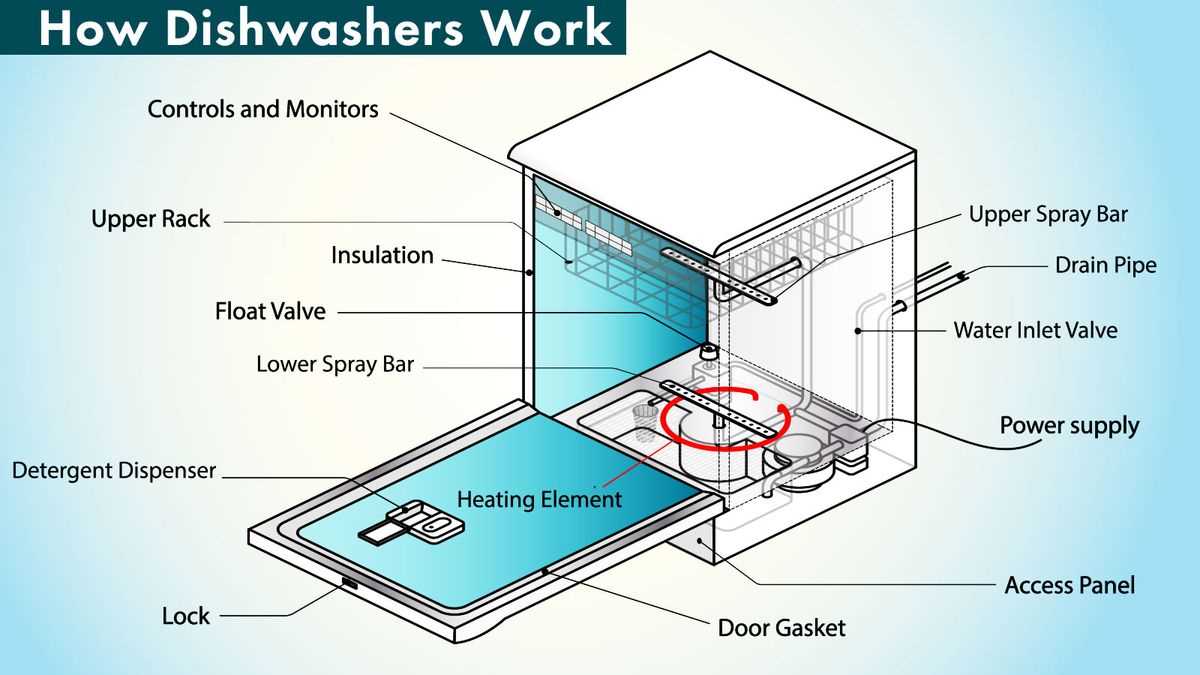
While it may be tempting to use washing up liquid for dishwashing in a pinch, there are several downsides to consider. Here are some of the cons of using washing up liquid in a dishwasher:
1. Excessive Foaming
Washing up liquid is designed to create foam while handwashing dishes, as it helps to loosen and remove food particles. However, in a dishwasher, the excessive foaming can cause problems. The dishwasher may overflow with foam, leading to a messy and time-consuming cleanup.
2. Smaller Batches
Using washing up liquid in a dishwasher may require smaller loads. This is because the foam generated by the detergent can take up valuable space, limiting the number of dishes that can be loaded into the machine at once.
3. Difficulty in Rinsing
Washing up liquid is not designed to be easily rinsed off dishes, as it is meant to be used for handwashing where thorough rinsing is not always necessary. When used in a dishwasher, the residue from the detergent may not be fully rinsed off, leaving a film on the dishes and glasses.
4. Lack of Cleaning Power
Compared to dedicated dishwasher detergents, washing up liquid may not provide the same level of cleaning power. Dishwasher detergents are specifically formulated to remove tough stains and grease, while washing up liquid may not be as effective in tackling these issues.
5. Potential Damage to the Dishwasher
Using washing up liquid in a dishwasher can cause damage to the appliance. The excessive foaming can lead to clogs, requiring professional repair and causing inconvenience and additional expenses.
6. Inconsistent Results
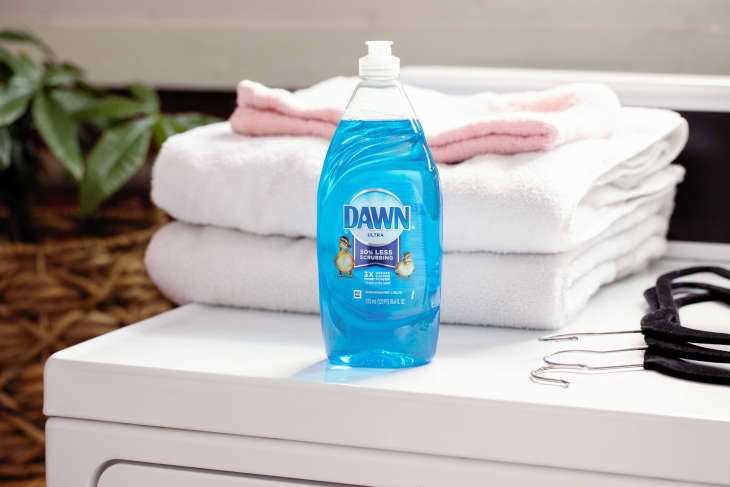
Without the specific enzymes and proteins found in dishwasher detergents, using washing up liquid may result in inconsistent cleaning results. Some dishes may come out sparkling clean, while others may still have residues or stains.
In conclusion, while using washing up liquid in a dishwasher may seem like a quick and convenient solution, it is not recommended due to the potential problems and limitations it can cause.
Why a Dishwasher Needs a Detergent
When it comes to cleaning dishes, a dishwasher is a great appliance to have in your kitchen. But have you ever wondered why it needs a specific detergent to get the job done? In this article, we will explore the importance of using the right detergent in your dishwasher and why alternatives like washing up liquid may not be the best option.
The Socket and the Sink
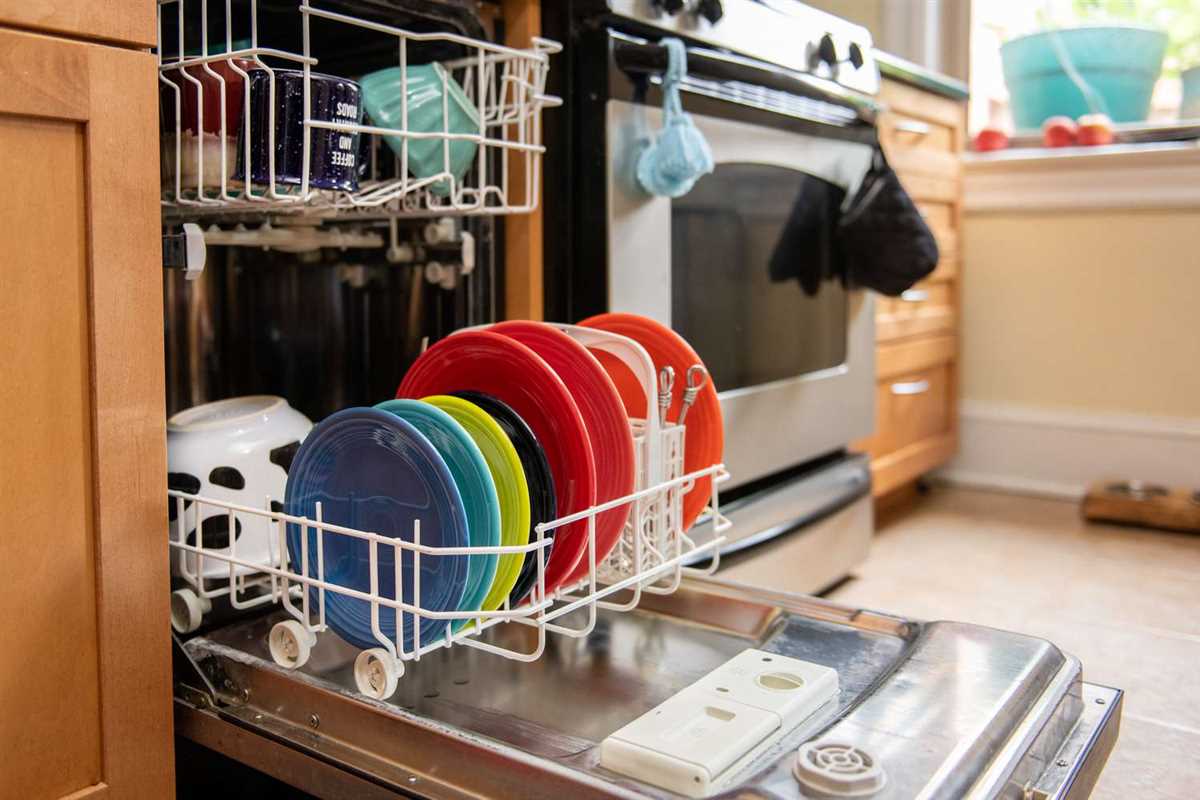
To understand why a dishwasher needs a detergent, it’s important to first understand how it works. A dishwasher is connected to a power socket and also to the kitchen sink. This connection allows dirty water to drain out and clean water to be pumped in during the cleaning process.
The Cleaning Cycle and the Role of Detergent
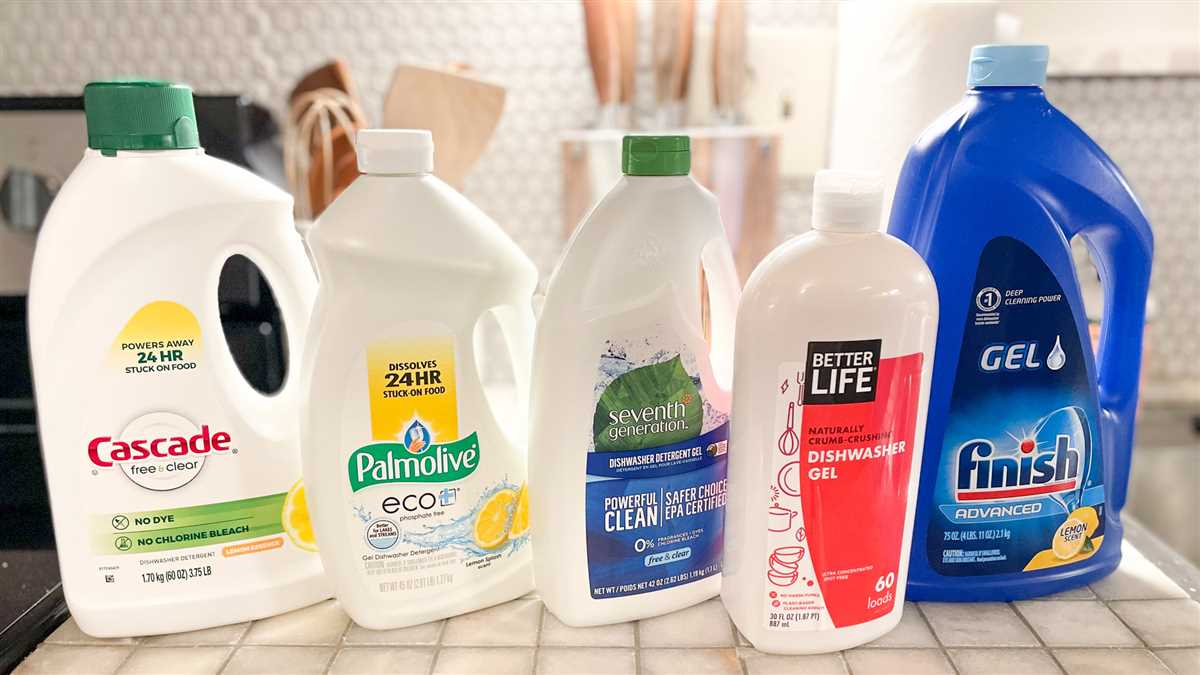
During a regular dishwashing cycle, several steps happen. First, the dishwasher fills up with water from the sink. Then, the detergent is dispensed into the water, creating a soapy solution. This solution helps to break down grease and food particles on the dishes. Finally, the dirty water is drained out and replaced with clean water for rinsing.
The Consequences of Using the Wrong Detergent
If you accidentally use washing up liquid instead of dishwasher detergent, several issues can arise. Washing up liquid creates a lot of foam, which can cause the dishwasher to overflow and create a mess. Additionally, the foaming soap may not be able to remove grease and food particles as effectively as a dishwasher detergent, leading to less-than-clean dishes.
The Immediate Action You Need to Take

If you accidentally use washing up liquid in your dishwasher and notice foaming, it is important to stop the dishwasher cycle immediately and drain out the soapy water. This will help avoid any damage to the dishwasher or nearby parts.
The Hazard of Homemade Solutions
You may come across homemade solutions or alternative detergents in articles that claim to be effective in cleaning dishes in the dishwasher. However, these homemade solutions may not have the right balance of ingredients and can cause more harm than good. It is best to stick with commercially available dishwasher detergents.
The Key Differences Between Soaps and Dishwasher Detergents
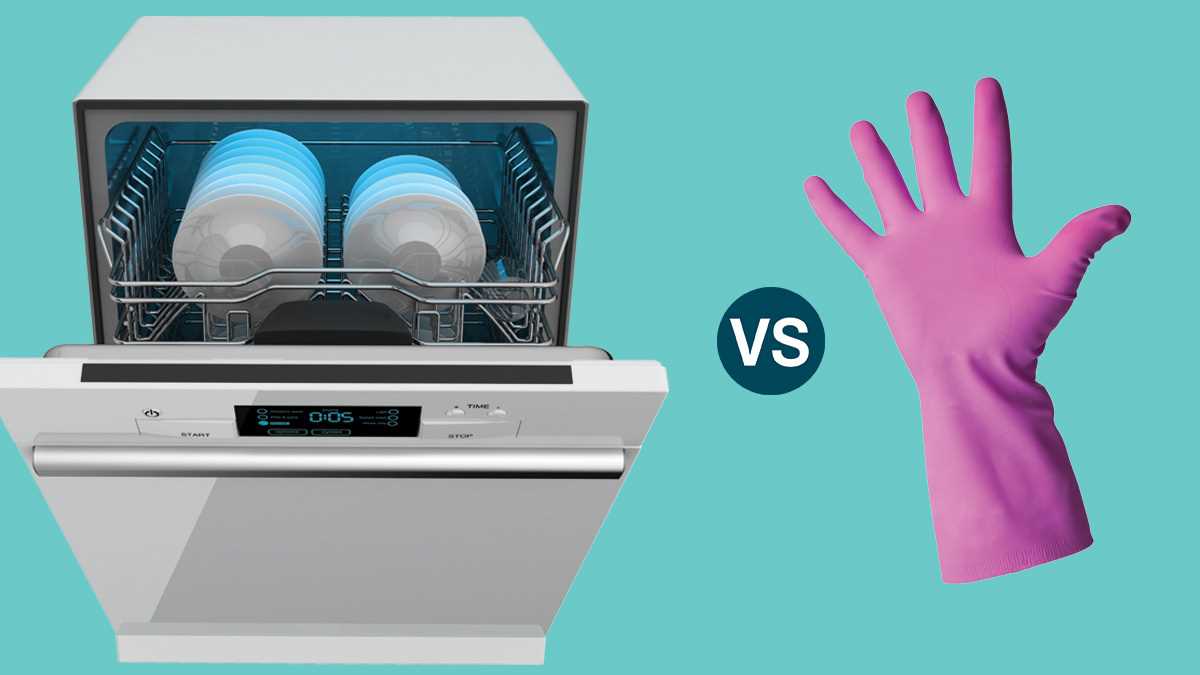
Soaps, including washing up liquid, are designed to create a thick lather and are meant to be rinsed off with water. On the other hand, dishwasher detergents are specifically formulated to work in a dishwasher, with ingredients that help remove grease and food particles effectively, without excessive foaming or residue.
The Power of Dishwasher Detergent
Dishwasher detergents come in different forms, such as powder, liquid, pods, and tablets. The choice of detergent depends on personal preference and the type of dishwasher you have. All these options, when used correctly, ensure that your dishwasher gets the cleaning job done effectively.
Shopping for the Right Detergent
When buying dishwasher detergent, look for products that are specifically labeled for use in dishwashers. These detergents are designed to work best in the dishwasher’s cleaning environment and will help ensure clean and spotless dishes every time.
In conclusion, while it may be tempting to use washing up liquid or try homemade solutions in your dishwasher, it’s important to remember that these alternatives can create more problems than they solve. Stick to using the right dishwasher detergent and follow the manufacturer’s instructions to keep your dishwasher running well and your dishes clean.
Choosing the Right Detergent for Your Dishwasher
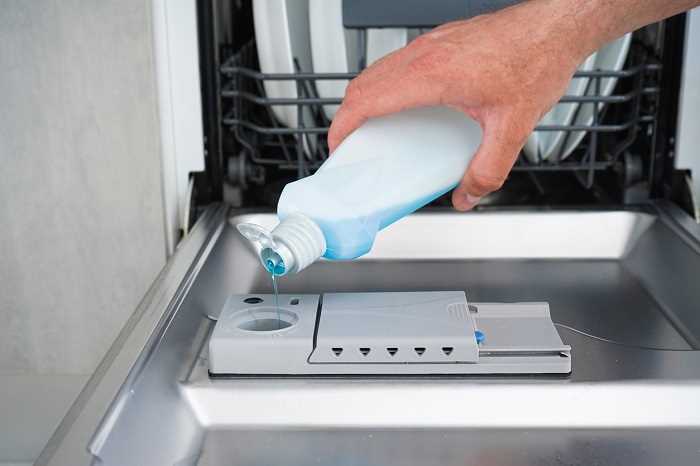
When it comes to cleaning your dishes in a dishwasher, using the right detergent is crucial. Not all detergents are created equal, and using the wrong one can cause issues with the dishwasher and your dishes. Let’s explore the different types of detergents available, their pros and cons, and how to choose the best one for your dishwasher.
Regular Dishwasher Detergents
The most common detergents used in dishwashers are regular dishwasher detergents. These detergents are specifically designed to create less foaming and rinse out easily. They come in various forms, such as powder, gel, and pods. Regular dishwasher detergents are formulated to remove tough food stains and leave your dishes sparkling clean. They also help prevent the buildup of mineral deposits in your dishwasher’s drain and pipes.
Dishwashing Soaps
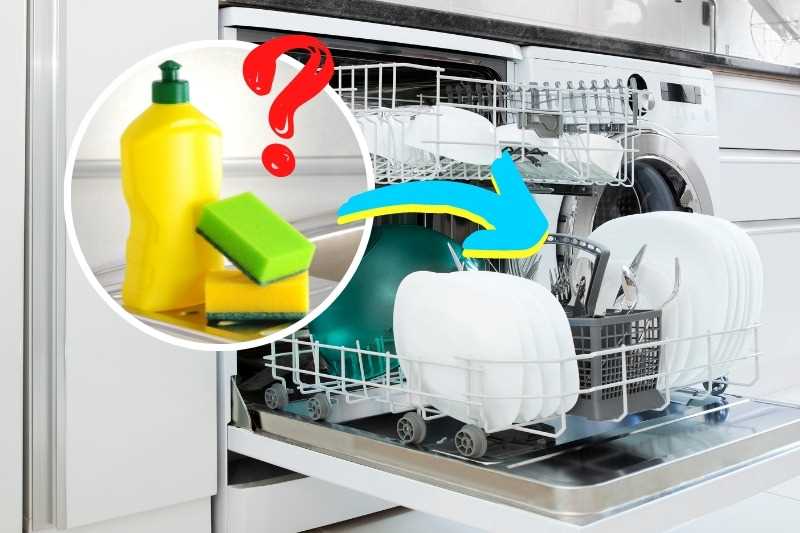
Using regular dishwashing soaps or soaps designed for handwashing dishes in a dishwasher is not recommended. These soaps create excessive foaming, which can cause your dishwasher to overflow and create a mess in your kitchen. Moreover, dishwashing soaps may not effectively clean your dishes as they are not formulated to remove strong food stains and grease.
Homemade Solutions
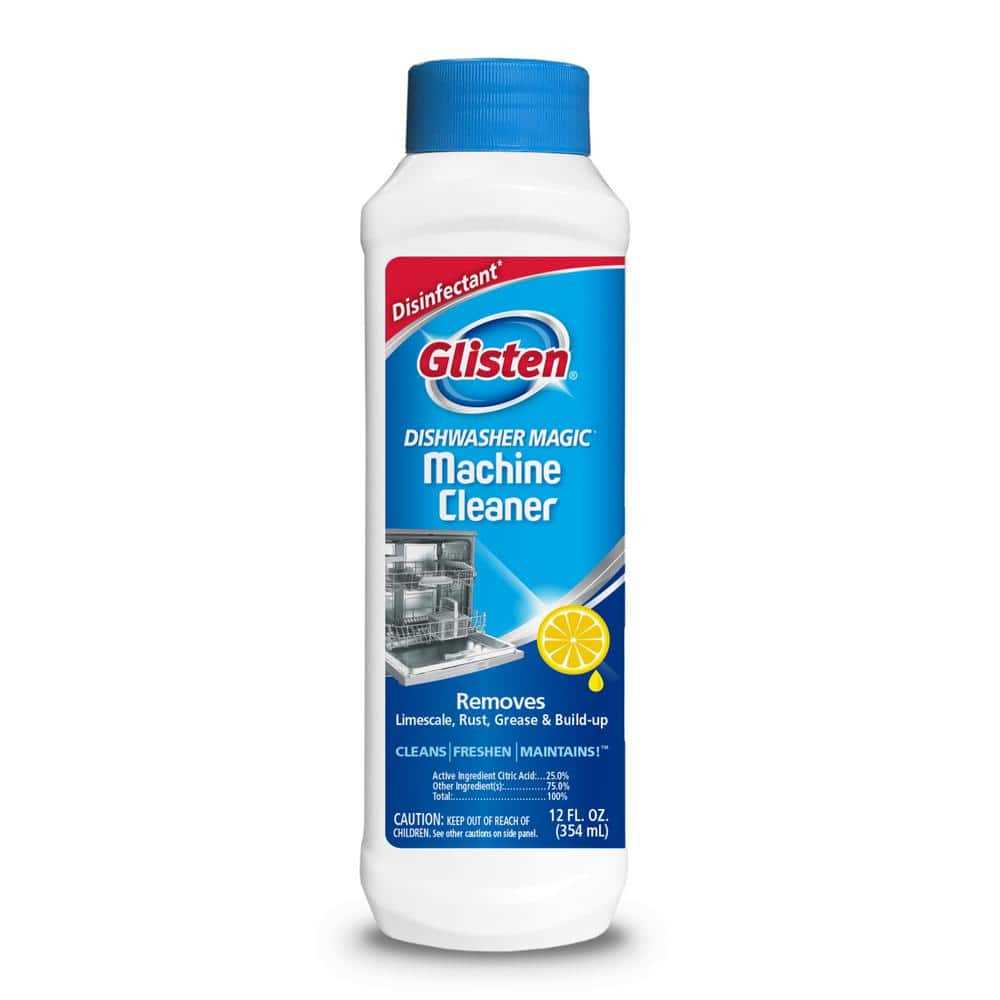
If you find yourself in a pinch without any dishwasher detergent, you can try using homemade solutions as a temporary alternative. A popular homemade detergent alternative is mixing baking soda and a small amount of regular dish soap. Be cautious when using this method, as it may create excessive foaming and potentially cause issues with your dishwasher if not used properly.
Choosing the Right Detergent
When buying dishwasher detergent, there are a few key factors to consider:
- Read product labels and customer reviews: Before buying a detergent, read the product labels and customer reviews to ensure its effectiveness and compatibility with your dishwasher.
- Consider your dishwasher’s needs: Different dishwashers may require different types of detergents. Some may work best with powder detergents, while others may be more suited for gel or pod detergents. Check your dishwasher’s manual for specific recommendations.
- Look for detergent scent: If you prefer a fresh scent on your dishes, look for detergents that offer a pleasant fragrance.
- Consider any special requirements: If you have specific cleaning needs, such as removing tough stains or sanitizing your dishes, look for detergents that address those concerns.
It’s important to always follow the manufacturer’s instructions when using dishwasher detergents. Using the right detergent will ensure that your dishwasher operates efficiently and your dishes come out clean and spotless after each cycle. If you accidentally use other cleaning products in your dishwasher, such as regular soaps or detergents without compatibility with dishwashers, stop the cycle immediately and rinse out the dishwasher. Running the dishwasher with incompatible products can cause major issues and potentially damage your appliance.
By choosing the right detergent for your dishwasher, you can enjoy hassle-free and efficient cleaning for your dishes without worrying about any unpleasant surprises.
FAQ
Can I use regular dish soap in a dishwasher?
No, regular dish soap is not suitable for use in a dishwasher. It creates too many suds and can cause your dishwasher to overflow.
What happens if I use washing up liquid in a dishwasher?
If you use washing up liquid in a dishwasher, it will create excessive suds that can overflow and cause damage to your dishwasher.
Is it safe to use washing up liquid in a dishwasher occasionally?
No, it is not safe to use washing up liquid in a dishwasher, even occasionally. The high amount of suds can cause your dishwasher to overflow and potentially damage it.
Can I use dish soap in a dishwasher as a temporary solution?
No, using dish soap in a dishwasher, even as a temporary solution, is not recommended. It can cause your dishwasher to overflow and potentially damage it.
What are the risks of using washing up liquid in a dishwasher?
The main risk of using washing up liquid in a dishwasher is that it will create excessive suds, which can overflow and cause damage to your dishwasher. Additionally, the dish soap may not clean your dishes as effectively as a dishwasher detergent.
What should I do if I run out of dishwasher detergent pods?
If you run out of dishwasher detergent pods, it is best to purchase more or use an alternative dishwasher detergent. Using regular dish soap is not recommended as it can cause your dishwasher to overflow.
Are there any advantages to using washing up liquid in a dishwasher?
No, there are no advantages to using washing up liquid in a dishwasher. It is not designed for use in dishwashers and can cause damage to the appliance.














